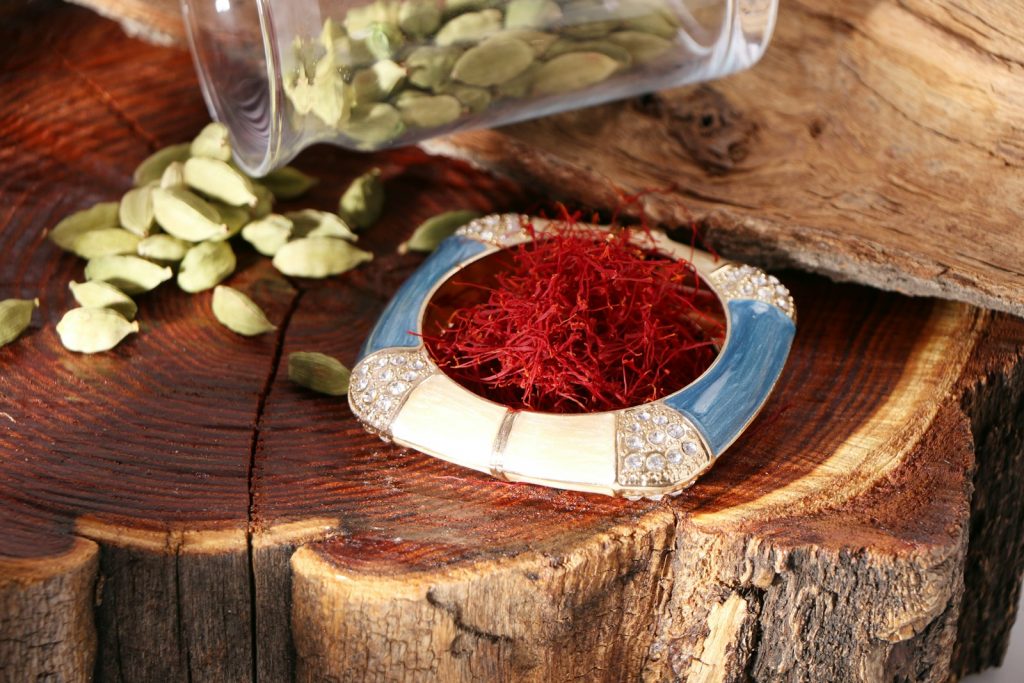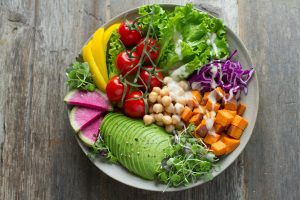14 Impressive Health Benefits of Saffron

Saffron, often called the “golden spice,” is one of the most precious and sought-after spices in the world. Known for its vivid red threads and distinctive flavor, saffron has been used for centuries in both culinary and medicinal applications. Derived from the Crocus sativus flower, saffron is not only cherished for its unique taste and color but also for its numerous health benefits. From boosting mood and enhancing cognitive function to improving heart health and supporting weight loss, saffron is a powerful natural remedy that offers a wide range of therapeutic properties.
In this article, we’ll explore the 14 impressive health benefits of saffron, delving into how this golden spice can enhance your overall well-being, improve specific health conditions, and support long-term vitality.
1. Rich in Antioxidants
One of the most remarkable benefits of saffron is its high concentration of antioxidants. These compounds play a crucial role in protecting the body from oxidative stress caused by free radicals, which can damage cells and contribute to chronic diseases such as cancer, heart disease, and neurodegenerative disorders. Saffron contains several powerful antioxidants, including crocin, crocetin, safranal, and kaempferol, all of which work together to neutralize free radicals and protect the body from oxidative damage.
Crocin and crocetin are particularly potent antioxidants responsible for saffron’s bright color. They have been shown to reduce inflammation, protect brain cells, and even suppress the growth of cancer cells. Safranal, another key antioxidant, not only contributes to saffron’s distinct aroma but also has mood-boosting and sedative effects, making it useful for stress relief and relaxation. Kaempferol, a flavonoid found in saffron, has been linked to reduced inflammation and a lower risk of chronic diseases.
By incorporating saffron into your diet, you can boost your intake of these powerful antioxidants, helping to protect your body from oxidative stress, reduce inflammation, and promote overall health.
2. Boosts Mood and Fights Depression
Saffron has gained a reputation as the “sunshine spice” not only because of its vibrant color but also for its ability to improve mood and fight depression. Studies have shown that saffron may be as effective as certain antidepressant medications in alleviating symptoms of mild to moderate depression. The mood-boosting effects of saffron are primarily attributed to its impact on serotonin, a neurotransmitter that regulates mood, emotions, and feelings of well-being.
Saffron contains compounds that help increase serotonin levels in the brain, leading to improved mood and reduced symptoms of anxiety and depression. In a number of clinical trials, saffron supplementation has been shown to significantly reduce symptoms of major depressive disorder (MDD) and may even provide similar benefits to commonly prescribed antidepressants like fluoxetine (Prozac) without the side effects.
For individuals seeking a natural remedy for mood enhancement and emotional balance, saffron can be a valuable addition to their wellness routine, promoting a more positive outlook and reducing feelings of sadness and anxiety.
3. Enhances Cognitive Function and Memory
Saffron is not only beneficial for mood but also plays a key role in supporting brain health and enhancing cognitive function. Research has shown that saffron’s antioxidant properties help protect brain cells from oxidative stress, which is a major contributor to cognitive decline and neurodegenerative diseases such as Alzheimer’s and Parkinson’s. By reducing oxidative damage and inflammation in the brain, saffron may help preserve cognitive function and improve memory.
In addition, saffron contains compounds that enhance learning and memory retention. Crocin, in particular, has been shown to improve spatial memory and learning abilities in animal studies, suggesting that it may help prevent cognitive impairment and age-related memory loss in humans.
For those looking to improve mental clarity, enhance memory, and protect against cognitive decline, saffron offers a natural and effective solution to support brain health.
4. Supports Heart Health
Heart disease is one of the leading causes of death worldwide, but incorporating saffron into your diet may help protect your heart and reduce the risk of cardiovascular conditions. Saffron has been shown to improve several markers of heart health, including cholesterol levels, blood pressure, and blood circulation.
Saffron contains crocin and crocetin, which have been shown to help reduce LDL (bad) cholesterol and prevent the buildup of plaque in the arteries, reducing the risk of atherosclerosis and heart disease. These compounds also improve blood flow and reduce blood pressure by promoting the relaxation of blood vessels, making it easier for the heart to pump blood efficiently.
In addition to improving blood circulation and cholesterol levels, saffron’s anti-inflammatory and antioxidant properties help protect the heart from oxidative stress, which is a major contributor to heart disease. Regular consumption of saffron may lower the risk of heart attacks, strokes, and other cardiovascular complications.
5. May Help with Weight Loss
For individuals looking to lose weight or maintain a healthy weight, saffron may offer some surprising benefits. Several studies have suggested that saffron can help reduce appetite and control cravings, making it easier to stick to a healthy diet and avoid overeating.
Saffron’s appetite-suppressing effects are thought to be related to its ability to boost serotonin levels, which can help regulate mood and emotional eating. In one study, women who took saffron extract experienced a significant reduction in snacking and reported feeling fuller for longer periods of time. This suggests that saffron may help curb cravings, reduce calorie intake, and support weight loss efforts.
In addition to its appetite-suppressing properties, saffron’s anti-inflammatory and antioxidant effects may help improve metabolism and promote fat burning, making it a valuable tool for individuals seeking natural support in their weight loss journey.
6. Reduces PMS Symptoms
For women who experience premenstrual syndrome (PMS), saffron may offer relief from common symptoms such as mood swings, irritability, cramps, and fatigue. Saffron’s mood-boosting properties, combined with its ability to regulate hormonal balance, make it an effective natural remedy for managing PMS symptoms.
Several clinical trials have shown that women who took saffron supplements experienced a significant reduction in PMS symptoms compared to those who took a placebo. Saffron’s ability to increase serotonin levels may help stabilize mood, reduce emotional distress, and alleviate physical symptoms like cramps and bloating.
Incorporating saffron into the diet or taking saffron supplements may provide a natural and effective way for women to manage PMS and improve their overall well-being during their menstrual cycle.
7. Anti-Cancer Properties
Saffron’s potent antioxidant properties also extend to its potential anti-cancer effects. Studies have shown that saffron’s bioactive compounds, particularly crocin, safranal, and kaempferol, may help inhibit the growth of cancer cells and prevent the spread of tumors.
Saffron’s antioxidants work by neutralizing free radicals that can damage DNA and contribute to cancer development. In laboratory studies, saffron extract has been shown to selectively kill cancer cells while leaving healthy cells unharmed. Additionally, crocin has been found to suppress the growth of cancer cells in various types of cancer, including breast, prostate, lung, and colon cancer.
While more research is needed to fully understand saffron’s role in cancer prevention, the existing evidence suggests that saffron may be a valuable complementary therapy for reducing cancer risk and supporting overall cellular health.
8. Improves Eye Health
Saffron may also benefit eye health and help prevent age-related vision problems such as macular degeneration. Research has shown that saffron’s high levels of antioxidants, particularly crocin, may help protect the eyes from oxidative stress and free radical damage, both of which contribute to vision loss as we age.
In studies involving individuals with age-related macular degeneration (AMD), saffron supplementation was shown to improve visual acuity and sensitivity to light. Crocin’s protective effects on the retina may help prevent further degeneration of the macula and improve overall eye function.
For individuals at risk of vision problems or those already experiencing age-related eye conditions, saffron may offer a natural way to support eye health and protect against vision loss.
9. May Help Reduce Blood Sugar Levels
For individuals with diabetes or those at risk of developing the condition, saffron may help regulate blood sugar levels and improve insulin sensitivity. Several studies have found that saffron’s antioxidant and anti-inflammatory properties can help improve glucose metabolism and reduce insulin resistance.
In animal studies, saffron extract was shown to significantly reduce blood sugar levels and improve insulin sensitivity, suggesting that it may help lower the risk of type 2 diabetes and its complications. While more human research is needed, these findings indicate that saffron may be a valuable supplement for individuals looking to manage their blood sugar levels naturally.
10. Improves Sexual Function
Saffron has long been used as a natural aphrodisiac, and modern research supports its potential to improve sexual function and enhance libido. Studies have shown that saffron may help improve sexual performance in both men and women, particularly for individuals experiencing sexual dysfunction related to antidepressant use or hormonal imbalances.
In men, saffron has been shown to improve erectile function and increase sperm motility, making it a valuable supplement for addressing male infertility. In women, saffron has been found to increase sexual desire, reduce discomfort during intercourse, and improve overall sexual satisfaction.
Incorporating saffron into the diet or taking saffron supplements may help enhance sexual health and improve overall well-being in both men and women.
11. Promotes Healthy Skin
Saffron is widely recognized for its skin benefits, thanks to its powerful antioxidants and anti-inflammatory properties. Saffron helps protect the skin from oxidative damage, which can lead to premature aging, wrinkles, and sun damage. It also helps improve skin tone, reduce hyperpigmentation, and promote a more youthful complexion.
Saffron’s ability to boost collagen production can also contribute to firmer, more elastic skin, while its anti-inflammatory effects help soothe skin conditions like acne, eczema, and rosacea.
Incorporating saffron into your skincare routine, whether through topical application or consumption, can promote healthy, radiant skin and help prevent the signs of aging.
12. Supports Digestive Health
Saffron’s anti-inflammatory and antioxidant properties extend to the digestive system, where it can help improve digestive health and alleviate symptoms of gastrointestinal disorders. Saffron has been shown to reduce inflammation in the gut, improve digestion, and soothe conditions like ulcers, irritable bowel syndrome (IBS), and colitis.
In addition, saffron may help regulate appetite and improve overall digestive function, making it a valuable supplement for individuals dealing with digestive issues or seeking to improve their gut health.
13. Helps Alleviate Respiratory Conditions
Saffron’s anti-inflammatory properties also make it beneficial for respiratory health, particularly for individuals suffering from asthma, bronchitis, or other respiratory conditions. Saffron helps reduce inflammation in the airways, making it easier to breathe and reducing symptoms such as coughing, wheezing, and shortness of breath.
For individuals dealing with respiratory infections or chronic conditions, saffron may offer relief by soothing the airways and reducing inflammation.
14. Promotes Relaxation and Better Sleep
Saffron’s sedative and calming properties make it an excellent natural remedy for improving sleep quality and promoting relaxation. By increasing serotonin levels and reducing anxiety, saffron can help alleviate insomnia and improve sleep duration and sleep quality.
For individuals dealing with stress, anxiety, or insomnia, incorporating saffron into their nightly routine can promote better sleep and overall relaxation.
Conclusion
Saffron is much more than just a culinary spice; it is a powerful natural remedy with a wide range of impressive health benefits. From its antioxidant-rich properties and mood-boosting effects to its ability to improve heart health, cognitive function, and sexual performance, saffron offers a variety of therapeutic uses that can enhance overall well-being.
Whether consumed as a supplement, added to dishes, or applied topically for skin benefits, saffron provides a wealth of health-promoting properties that make it a valuable addition to any diet or wellness routine. As research continues to uncover more about the health benefits of saffron, it’s clear that this ancient spice holds great promise for promoting long-term health and vitality.



